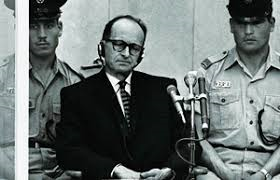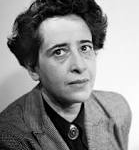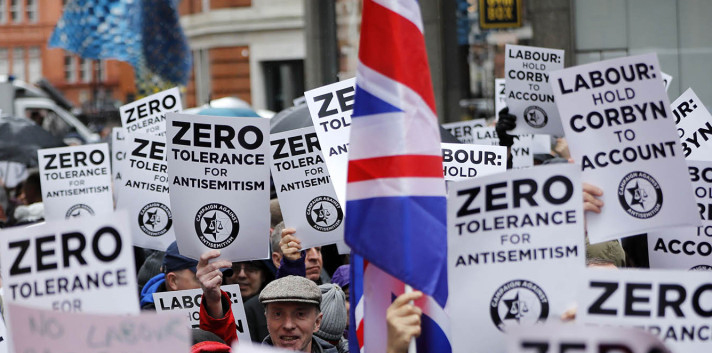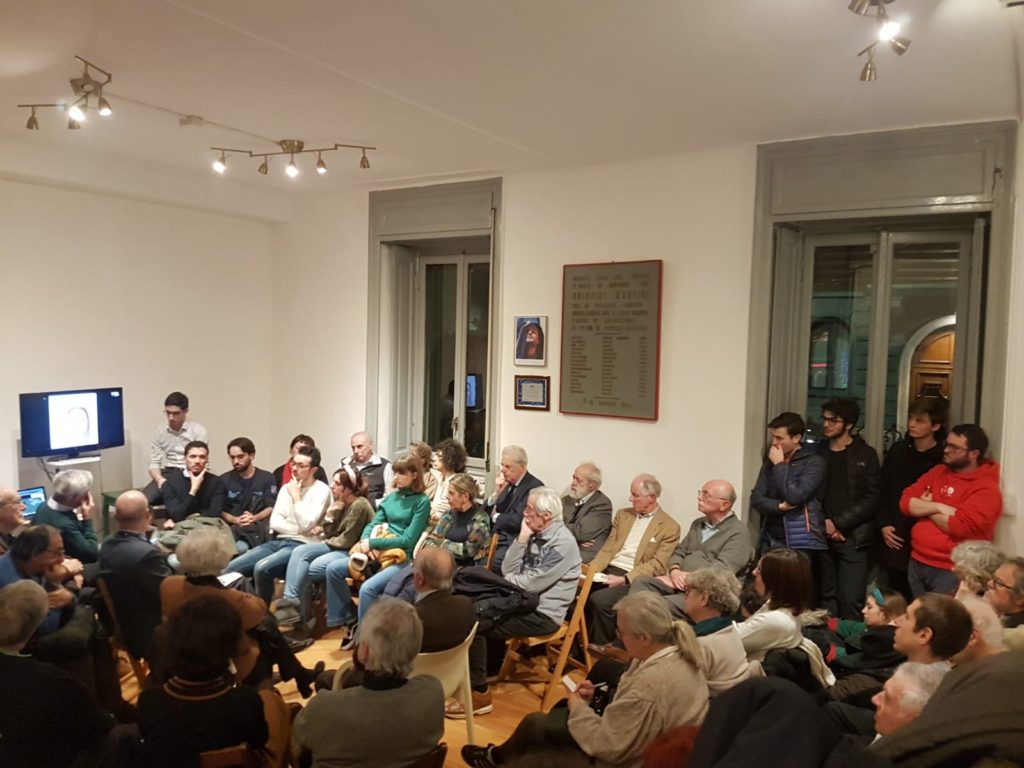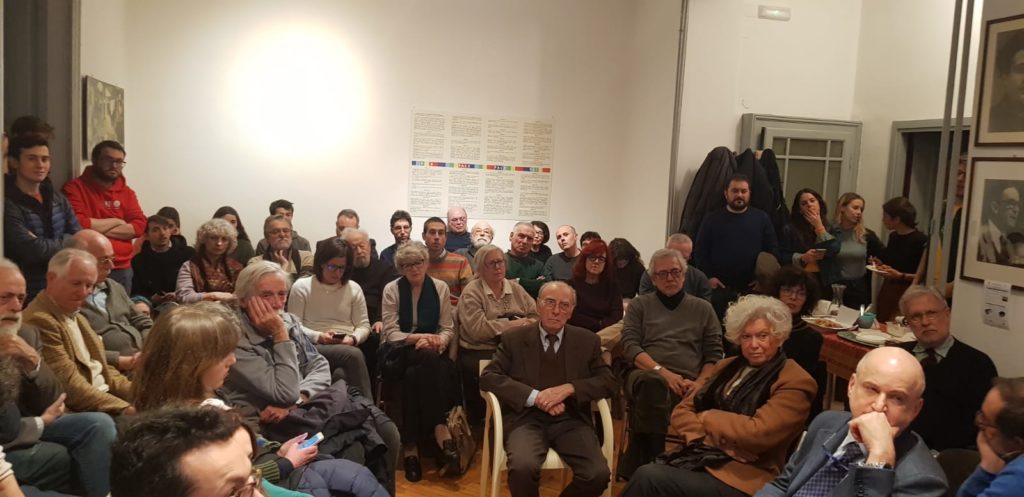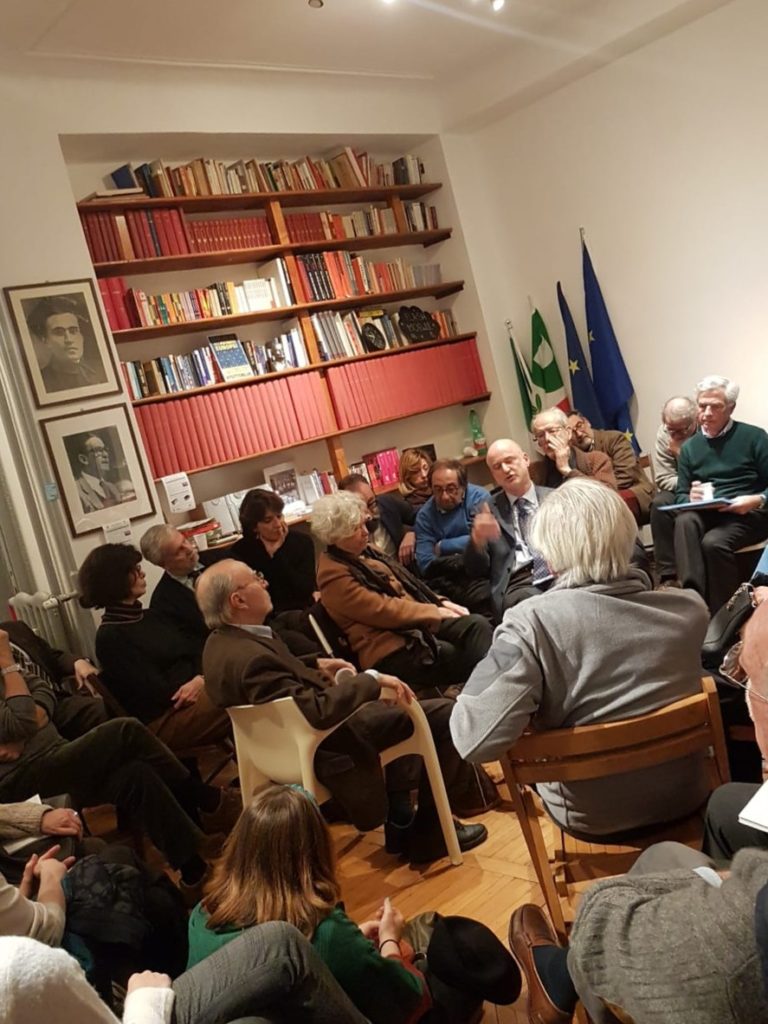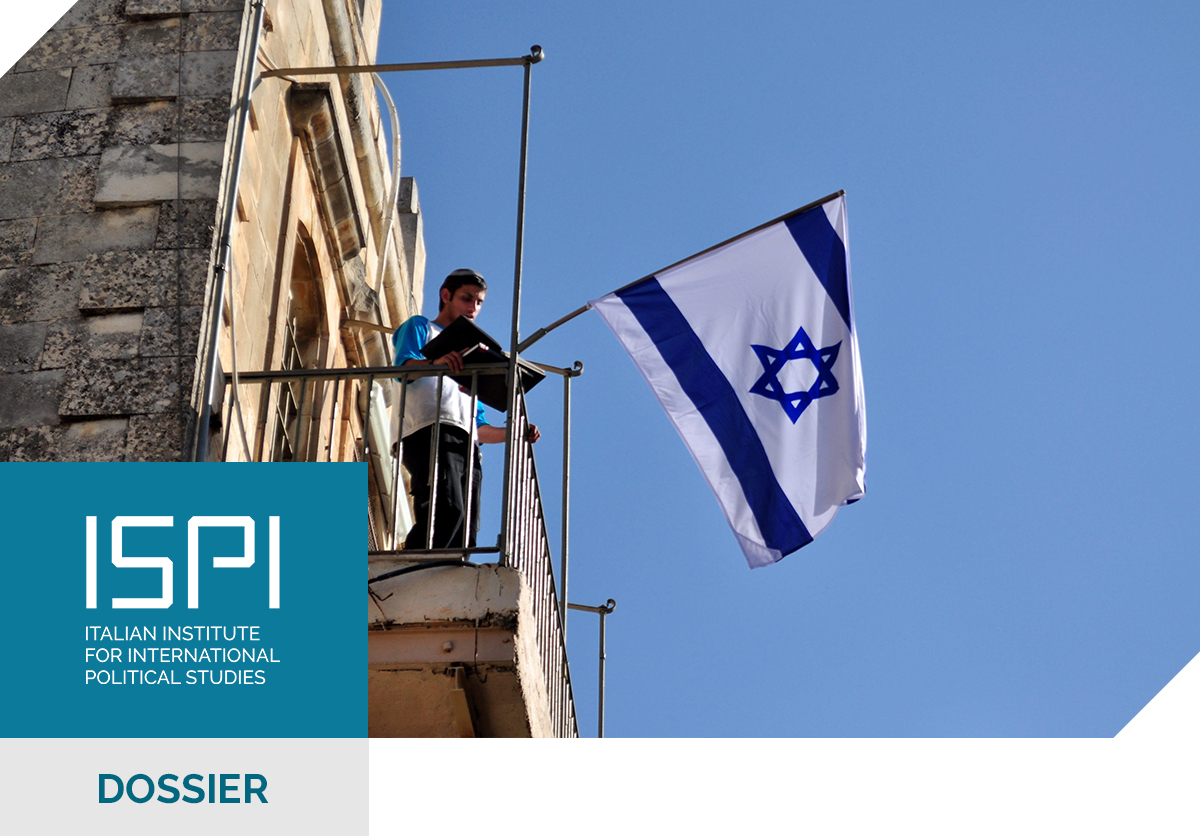
ISRAELI ELECTIONS TRYING TO ESCAPE FROM THE DEADLOCK, AGAIN
The March 2 general elections in Israel – the third in 11 months – remain contested and uncertain, crossed by scandals, fake news and harsh propaganda. The country is facing an unprecedented political situation, with a heavy toll on governance and policymaking. According to the latest polls, neither Benjamin Netanyahu nor Benny Gantz will cobble together a majority: the scenario of a fourth election is increasingly likely. Trump’s Peace Plan and its still unpredictable outcomes for Israel, the Palestinians and the region have added even more uncertainty to this situation. What is it at stake? How will Washington’s Middle East plan impact the Israeli vote? Has Netanyahu’s time in power come to an end?
The “Netanyahu Factor” Driving Israelis to the Polls Nimrod Goren | 28 febbraio 2020
Israelis have gotten used over the years to governments that do not complete their full terms. But, they never experienced repeat elections prior to 2019. The current political deadlock is leading Israelis to the polls for the third time in one year. In the final days of the campaign, leading candidates are even referring to the option of a fourth round. Israelis are facing an unprecedented political situation that takes a heavy toll on governance and policymaking. They are also experiencing a reality that runs counter-intuitive to the Israeli state of mind of the past decade, which used to perceive Prime Minister Benjamin Netanyahu as being bound to lead on and on.
Since 2009, Israeli politics has been largely shaped by one man. By winning consecutive elections and forming consecutive coalitions of various sorts, Netanyahu managed to dominate Israeli politics, prevent potential contenders from standing a chance against him, and be regarded by most Israelis (and by many in the international community) as invincible. It is not by chance that the term “King Bibi” was used on the covers of both Time and Newsweek, and was the title chosen for a documentary film that explored Netanyahu’s rise to power.
For years, Netanyahu had almost total control of his party, successfully maneuvered leaders and voters of other right-wing parties, effectively disempowered opposition from the center and left, shaped the public discourse to his advantage, delegitimized political rivals while polarizing the society, and overall – stirred Israel’s reality to his direction of interest. Time and time again, Israelis went to the polls with no real hope of leadership change. The main open question used to be which type of coalition will Netanyahu form after results are announced.
And then things changed. Corruption investigations that were initially dismissed and brushed off by Netanyahu, picked up pace. From one legal phase to the other, it became evident to Israelis that a major issue is brewing. Netanyahu’s repeated and increasingly harsh attacks on key personnel in the legal establishment, which were aimed at mobilizing his political base and rally his supporters, exemplified just how problematic his situation is. It was anti-corruption slogans that played a leading role in the downfall of the Likud government in 1992 and the victory of Yitzhak Rabin, and Netanyahu seems to have understood the political danger that his legal issues pose to him.
To try and counter that, Netanyahu hastened into early elections (April 2019). His goal was to quickly form a new coalition that will advance legislation protecting him from being indicted while in office. Election results initially indicated that he has succeeded in paving the way for that. His traditional right-wing bloc had the required majority. But a surprise was in the waiting. Former Minister of Defence, Avigdor Lieberman, a nationalist right-wing politician who has been part of Netanyahu’s camp since the 1990s (although episodes of political rivalry), broke ranks. Without Lieberman’s party, Yisrael Beiteinu, Netanyahu did not have a coalition. His efforts to attract centrist/leftist parties to join a “unity government” or even to bring on board a single defector from another party who will give him the necessary majority in parliament – all failed.
In the past, Netanyahu used to carry out such political moves easily. But, due to his corruption allegation, he became a persona non grata among his opponents. They were not willing to enable him to become prime minister again, given his potential downfall and the legislative reforms he sought to advance. Netanyahu was losing ground. As he failed to form a government and went to repeat elections, his image as invincible and as a “political magician” was shattered. Moreover, his image in Israel as “Mr Security” was now effectively challenged by the Blue and White Party leader, Benny Gantz, which featured three ex-IDF Chiefs of Staff on the top of its list.
Netanyahu sought remedy in diplomatic activism. He saw the realm of foreign policy as one in which he has an added value over his contenders. Billboards of him shaking hands with Donald Trump and Vladimir Putin appeared all over Israel, portraying him as a mega-diplomat. International visits and meetings were orchestrated for him, and world leaders were willing to grant Netanyahu new diplomatic achievements that he can present as part of his campaign. However, this – like other elements of his campaign – did not prove to be effective. The September 2019 elections showed a decline in votes for the Likud party, and Netanyahu failed again in forming a government, despite the loyalty of his party and ideological bloc (excluding Lieberman).
Towards the March 2019 elections, that tone of the opposition was already more confident. “He just can’t” was the slogan of Blue and White against Netanyahu, referring to his inability to form a coalition. “Netanyahu only cares about himself”, their campaign said, referring to the court case against Netanyahu that will begin just two weeks after the elections, on March 17th. Even the announcement of the so-called Trump Plan, which was supposed to be the ultimate political gift to Netanyahu towards the elections, was handled by the opposition in a way that did not increase Netanyahu’s popularity in the polls.
It is still not clear which direction the upcoming elections will go. But, Netanyahu’s time in power should be up. His long tenure led him to develop a sense of entitlement to the position, that prevented him from doing – at least until now – what a prime minister accused of bribe should do: announce resignation. The damage to Israeli democracy, state institutions and governance caused by his political and personal conduct is mounting. Israel is paying a heavy price for this. It is a price that drives voters to the polls time and time again. It is also a price that drives many of them to seek a new prime minister.
Netanyahu vs Gantz: How to Defeat Each Other Peter Lintl | 28 febbraio 2020

The starting point and the sole reason that Israel faces a third election within a year is Prime Minister Benjamin Netanyahu’s looming (and now happening) indictment due to several corruption cases. Since Netanyahu seems to put all his hopes on a law granting him legal immunity he is bound to coalesce only with right winged parties – all others parties from the center-left-Arab bloc have ruled this possibility out. And since secular nationalist Avigdor Lieberman with his Yisrael Beitenu party has dropped out of the right-winged block supporting Netanyahu, we see a stalemate since April 2019. It is clear that any other Likud leader would be able to form a coalition with the centre, as the indictment is the only reason hindering that. Yet so far, no one was able to form a coalition without Netanyahu nor oust him as Likud leader.
Nevertheless his challenger Benny Gantz has managed to establish himself as a formidable opponent: as the first challenger since long, he achieves similar support in polls regarding the ability of leading the country. Secondly, his party alliance, Kahol-Lavan (“Blue and White”), has become the strongest party in the Knesset.
Political constellations
The two candidates operate within very small margins. As the recent elections as well as current polls show: the overwhelming majority of voters will not change their political opinion and switch sides to the other blocks. The right-wing and the center-left-Arab blocs are rather stable. Thus, in the last weeks before the election, the respective campaigns focus on two aspects: first, to mobilize their core electorate and to counter a potential election fatigue among the voters. This seems to be the case especially with the Likud electorate. Sources from within the Likud speak of up to 300,000 potential Likud voters who did not vote for the party in the last elections. Secondly, there is a slim group, the so-called “soft right”, which is, according to polls, the only group of voters to potentially switch between the blocks from right to center-left.
Benny Gantz: appealing to the soft right
Benny Gantz and his party are bound to convince the small margin of moderate, soft right wing voters, who are critical of Netanyahu due to his corruption indictment. For Gantz tactics this translates on focussing on notions related Netanyahu’s looming trial: fighting corruption, re-establishing trust in state institutions, and general depicting himself as statesmanlike-leader (mamlachti) working for the whole of society, whereas Netanyahu is portrayed as utilizing the premiership for his own interests. Generally speaking, Gantz counters those voices that want to transform Israel into a more illiberal, majoritarian democracy.
As a further consequence, Gantz tries to avoid political stances which are associated with the left which could deter those soft right-wingers. He categorically rejects the possibility to include the Arab Joint List into any future coalition, since it is a party that is largely made up by Arab-Israelis. Furthermore, especially in this last election campaign, Gantz maintains moderate right-wing positions regarding the Palestinian Territories: e.g. that he would never return the Jordan Valley or that he would even annex the Jordan Valley – albeit in coordination with the international community (which effectively means not annexing it). Later on, he also stated that he would implement the “Trump Plan” after the election and thus implicitly annex all settlements. Nevertheless, over the last year Gantz was sending mixed signals regarding the West Bank and potential process with the Palestinians. Especially during the first election campaign in 2019 he also spoke of renewing the peace process.
Bottom line, Gantz positions himself as a moderately right wing politician, in a way not unsimilar to the pre-Oslo Labour party. Yet, since he is compelled to win this margin of soft-right Likud voters, it is hard to tell where he really stands on those issues. In addition, his party is extremely split: the bandwidth ranges from clear left-wingers like former Meretz member, Yael German, to outspoken pro-settlement activists as Zvi Hauser. Generally speaking, as many pundits observe, neither Gantz nor his party really formulate a concise vision of a future Israel. The main message and common denominator is to replace Netanyahu.
Netanyahu: acting prime minister in the ropes
Netanyahu’s election campaign relied much on the aspects it emphasized in the previous two campaigns, with a few updates in the respective fields. It featured Israel’s excellent economy (highlighting that Israel is a gas exporter), Netanyahu’s good relations with important foreign leaders and former foes (Netanyahu just attained overflight rights for Israeli planes over Sudan) and his capacity in keeping the enemies at bay, while at the same time portraying Gantz as a left-winger with whom the country would be endangered in all those fields.
Yet what certainly stood out in recent weeks and dominated the media was the so-called Trump Peace Plan – which was, not incidentally, published on the very day on which Netanyahu’s bid for immunity was scheduled to be discussed in the Knesset. The publishing of the plan is without any doubt a major political and PR achievement of Netanyahu. The plan is very close to Netanyahu’s own political positions (some ideas seem to be strikingly similar to those presented in Netanyahu’s “A Durable Peace”).
In addition, the impression of the strong bond between Netanyahu and US President Donald Trump was further strengthened by the image of the two, presenting the Peace Plan together to the public. Thus one of the successes was certainly to highlight during the election campaign Netanyahu’s potency and somewhat overshadowing the indictment.
Yet while it is generally welcomed in the Israeli society up, also by many who would see themselves as political centrist – the plan did, according to latest polls, not help to win any voters from the centre.
One of the consequences of that was that Netanyahu started a last minute effort and rolled out an economic vision for the next decade, promising cheaper housing, tax reductions and lowering the food prices.
Constellations and outlook
Thus, by the time of writing, the political constellation as well as the polls look very similar to the results of the September elections, which produced the stalemate between the right-wing and center-left-Arab bloc. The outcome of the election will be crucially influenced by the extent the parties can mobilize their electorates – of special importance will the turnout of the volatile Arab-Israeli vote. Additionally those soft right voters will also play an important role.
There are three principles scenarios for potential coalitions after the election: 1) Gantz can form a coalition without Netanyahu; 2) Netanyahu can form a coalition to pass an immunity law for him; or 3) leaders find some other creative way to allow Netanyahu protection from law enforcement. Some stipulated something like a “Nixon Law”, granting Netanyahu a pardon in exchange for him to step down. Albeit all of those possibilities seem unlikely. Yet, if this issues will not be solved, stalemate will prevail.
In this case, several factors will be worth watching: first, it needs to be seen to what extend the start of the trial against Netanyahu on March 17th will affect coalition negotiations and the standing of Netanyahu. Linked to this is, secondly, the question for how long the Likud will not rebel against Netanyahu as party leader. And thirdly, it is important to see if the minor parties will eventually switch blocks or put pressure on Gantz or Netanyahu to compromise. Especially the ultra-orthodox parties are worth watching here: their societies are heavily dependent on state subsidies for religious schools. They are in urgent need of the passing of a new budget – something a caretaker government without a Knesset majority, as is in office since 2019, cannot do.
For Netanyahu, on the other hand, the stalemate – or potentially a forth election, as some already speculate – seems to be a good option.
What Palestinians Should Expect from Israeli Elections Hugh Lovatt | 28 febbraio 2020

President Donald Trump’s peace plan has been met with wall-to-wall opposition from Palestinians who see it as a denial of their aspirations for sovereign statehood. Many feel that it instead formalises a one state reality of open-ended occupation and unequal rights that they are currently living. Beyond the considerable anger and frustration that US actions have produced, it still seems like business as usual for Palestinians. Ultimately, what may produce a more significant reaction will be the more practical manifestations of the US plan, most particularly any steps towards de jure annexation of the West Bank. With this in mind, many Palestinians are awaiting the result of Israel’s latest round of elections.
For now, the reactions of the Palestinian leadership in Ramallah is limited to tinkering with the current Oslo peace process model, rather than ushering in a strategic rethink. There is still be no seriousness to enforce Palestinian threats to sever security cooperation with Israel or dismantle the Palestinian Authority (PA). President Mahmoud Abbas also remains unwavering in his belief in a two-state solution based on internationally agreed parameters.
Many in the PA and Palestine Liberation Organization (PLO) leadership are still hoping that the potential formation of an Israeli government led by Benny Gantz’ centrist Kahol Lavan (“Blue and White”) party would minimise the chances of annexation and allow both sides to re-right the ship. PA leaders hopes that the formation of a centre-left Israeli government could create a path towards this. They also hope that a Gantz government would allow Palestinian residents of East Jerusalem to participate in Palestinian national elections – a condition that President Abbas has set before issuing a presidential decree that would formally set in motion the electoral process.
The problem is not just that there is no plan B should Gantz lose. The other problem is that the Palestinian leadership in Ramallah is banking on an extremely optimistic reading of Israeli political dynamics. In reality, it is difficult to see how the next round of Israeli elections will produce anything more positive for Palestinians.
Whether Netanyahu stays or goes, there is unlikely to be a substantial break in Israel’s future foreign policy trajectory on the Palestinian issue. Any changes will be mostly cosmetic. Neither Gantz or Netanyahu support a return to status quo ante two-state position. Both have endorsed the US plan. Gantz was also quick to claim that Netanyahu stole his idea when he promised to extend Israeli sovereignty to the Jordan Valley.
Moreover, given current electoral dynamics, it is very unlikely that Gantz could, or would, seek a centre-left government with the Arab-Palestinian Joint Jist. Much more likely will be a centre-right government dominated by Gantz’ Kahol Lavan, Avigdor Lieberman’s Yisreal Beiteinu and a selection of other right-wing or ultra-orthodox parties, perhaps even a Likud without Netanyahu. Ironically, a Netanyahu win could actually suit the Palestinian cause better. Netanyahu’s removal would improve Israel’s relation with the EU, particularly western European governments who have grown frustrated with his behaviour, further reducing the EU’s willingness to criticise Israeli actions towards the Palestinians.
But it is perhaps in Gaza where a change of government would be most felt. Gantz and his erstwhile coalition ally, Lieberman, have criticised Netanyahu for being too soft and having squandered Israel’s deterrence capacity against Hamas. In response, they have openly called for the resumption of targeted assassination of Hamas leaders. While there is obviously a degree of electioneering behind such rhetoric, a Gantz government could very well end up taking a more confrontational position towards Gaza.
Palestinian reactions to the US plan, and what might follow, once again reveal the deep limitations and weaknesses of the Palestinian liberation movement in its current form. This is driving home an acknowledgement at all levels of Palestinian society that there needs to be a new strategy, and for this to happen, there needs to be new leadership.
Senior PA/PLO officials prefer a new leadership to emerge from within their ranks as a result of internal deal-making to succeed Abbas. While they publicly support elections, it is a safe bet that most see this as too unpredictable and potentially destructive to their ambitions given the unpopularity of both Fatah and the PLO, and their own public ratings. Hamas’s popularity, while marginally better, is also suffering, despite its continued dominance in student politics.
This generation of Palestinian leaders – whether from Fatah or Hamas – undoubtedly has the most intrinsic desire for continuity and stability, and is therefore the least likely to radically break from the current strategy, even if some changes cannot be discounted.
But many Palestinians, including a majority of the youth population, have become alienated from established political parties, and the Oslo-configured middle east process, and are desperate for new leadership and liberation strategies.
There is a new alternative, and younger, leadership emerging in the West Bank, East Jerusalem, Gaza, and the diaspora, that could potentially meet such criteria. These younger leaders and activist see the Trump plan as highlighting both the demise of the Oslo-configured two state paradigm and the need for alternative liberation strategies.
For many younger Palestinians, a new strategy will have to include the demand for equal rights within the existing one state reality (potentially without taking a collective position on two states or one state as the final goal). Along with this comes an emphasis on reviving the Palestinian national movement and promoting new forms of popular representation (at home and abroad). In parallel, there is another, equally as young, portion of Palestinian society that may gravitate towards a more confrontation approach, whether targeting Israel, its settlers, or the PA.
While a new generation of Palestinian leaders are playing increasingly important roles in grassroots mobilisation and international representation, the restrictive and exclusionary policies pursued by the main Palestinian parties, combined with Israeli detentions, are hampering their ability to compete at the national level. While this weighs against them over the short term, their age in comparison to the current generation of Palestinian leaders means that they may still prevail over the longer term. As such, the ideas which they are now discussing are perhaps more representative of where the Palestinian national movement is going.
Religious Parties: A Crucial Needle in the Israeli Vote Davide Assael | 28 febbraio 2020

To understand the extent of the upcoming Israeli elections on March 2, I think we have to start a little further back. At least since the last decade of the last century.
The 1990s were defined as the period of Israeli “Constitutional reform”, as they were characterized by an unprecedented activism of the Supreme Court. Since the birth of the state until then, the court had limited itself to promulgating fundamental laws (in Israel they replace the constitution) concerning the state’s power structure. In the Nineties the tone of the measures began to change. In 1992 the law on human dignity and freedom was promulgated, two years later the law on freedom of occupation (considering the context, it should be underlined that occupation meant jobs). The legislators were moved by the intent to fix what was expressed in the charter of ’48, which defined Israel as a “Jewish and democratic state”. However, in the conservative and religious circles of Israeli society the turning point was perceived as an unacceptable shift of the balance needle in a liberal direction to the detriment of the Jewishness of the nation. Following the old pendulum rule, what followed was a reaction in the sense of identity. This reaction had several consequences. The most striking was the birth of a new nationalist right wing, whose two most prominent figures were Naftali Bennet (founder of the Habayt Hayeudi, “The Jewish House”, party) and Ayelet Shaked.
For twenty years the most skilled in taking advantage of the new scenario has been Prime Minister Benjamin Netanyahu, who worked hard to become the leader of this new identity front. But in the Middle East, it is known, identity and religion are hardly divisible concepts. The space has therefore been created for Israeli religious parties to play their own game, with the aim of influencing the country’s politics. When we refer to religious parties in Israel we have to underline the large differences among them and remember that two Jews usually have three opinions. Since the origin of the state (and perhaps even earlier) two fronts had been established: one religious-Zionist, in favour of a conciliation between the religious and national spheres, the other composed of the haredim (literally, the feared), always skeptical of the state of Israel, considered culpable of being the result of secular-modern culture instead of being constituted on a messianic basis. In Western language this second group is called “ultra-Orthodox”. But, as we said, two Jews have three opinions, so even here it was impossible to create a common container. The haredim parties are divided into: Yahadut HaTorah (“Judaism of the Torah”) and Shas. The first, a de facto continuator of a party founded in Poland in 1912, is the result of the union of Agudat Israel (“Union of Israel”) and Deghel Israel (“Flag of Israel”). If the first one represents the Hasidic current (a mystical current today more than anything else devoted to Jewish proselytism), the second is an expression of Lithuanian Judaism, which has had so much weight in the interpretation of the Scriptures. Shas, founded in 1983, is instead an expression of Sephardic and Misrachi Judaism. Its charismatic leader was Rav Ovadia Yosef, Chief Rabbi of Israel from 1973 to 1983, who died in 2013.
In recent years these parties have been increasingly decisive for maintaining the coalition led by Netanyahu, which, with its peculiar unscrupulousness (you don’t have to be an expert on Machiavelli to recognize how much unscrupulousness in politics is a virtue), did not hesitate to make alliances with a world that does not belong even to a small extent to his human and political biography. Showing a remarkable ability in political bargaining, these parties managed to orient Israeli politics, obtaining a series of successes. First of all, confirming the rabbinic monopoly on conversions (here the conflict is with reformed Judaism) and on marriages, as on other areas of public life. Then, on the so-called “Law of the Wall”, where Netanyahu bowed to the most extreme demands, repeatedly contradicting himself. No mixed prayer area, where women and men can pray together. Third, with the Military Service Law[1]. This deserves a separate chapter. It is sufficient to say that the haredim communities benefit from special exemptions from the early years of the state. Exemptions which have gradually extended to anyone who pronounces the formula “The study of the Torah is my occupation”.
The rest is recent history: Avigor Liberman, founder of Israel Beitenu (“Israel our home”), an expression of the secular right, did not accept the rejection of ultra-Orthodox parties to revise the military service law, condemning Netanyahu’s government to fall. The center-left coalition reorganized around the figure of Benny Gantz, founder of Kahol-Lavan (“Blue and White”), forcing Bibi into a draw. A majority was not found and – which is unprecedented for Israel – citizens returned to the polls a second time. Another stalemate. The third election will take place on March 2. The country is exhausted. The disaffection towards politics grows, even if the voting percentages remain high, but driven by the extreme wings, which are involved in the game. The polls show an absorption of the smaller parties by the larger ones, but the balance between the two sides does not seem to have changed. Liberman has already said that this time he will guarantee the country a government. Going in which direction? The responsibility on his shoulders is enormous. First, to represent a bridge in an increasingly polarized country, one therefore more vulnerable to the enormous external pressure to which it is subjected. Second, to indicate the way for the future of Israeli identity. In what sense should the dialectic established by the founding fathers between Jewish and democratic values be redefined? Where to set the new limit? Because Israel is facing the same problems as all democracies around the world, where we are witnessing identity reactions following decades of openness and naive dreams of breaking down all limits. Except that in these parts the balance between universal and particular is called Zionism. The question is then legitimate: will Israel still be a Zionist state?
]Instead, we could be surprised by the skeptical reaction of the haredi world to the Law of the Nation enacted in 2018, which was due to the belief that it implied further secularization of the state.
Will Israeli Arabs Tip the Balance in the Elections? Claudia De Martino | 28 febbraio 2020

At a time when the political debate about state identity rages, the Palestinians of Israel, the biggest non-Jewish minority of the country (21% of the population), represent both the greatest electoral challenger and one of the few contradictory voices in an otherwise predominantly right-wing domestic electoral debate.
Despite running again in the next elections as a single slate – the Arab Joint List –, the Palestinians of Israel are a heterogenous group made up of four different parties (Hadash or the Democratic Front, Ra’am or the Southern Islamic Movement, Ta’al or the secular party and Balad or the national-secular party) divided along religious and political lines. From the group – despite their living in the “complete and united capital of Israel” (Basic Law 5740/1980) – are excluded the 350,000 Palestinians of Jerusalem enjoying a separate status, that of “non-citizen permanent residents of the State of Israel”, yet not entitled to vote in national elections: their condition is still pending and increasingly critical given the fact that East Jerusalem, according to the “Deal of the Century”, could never be returned to a Palestinian state, an accidental outcome eventually leading to their mass application for Israeli citizenship.
Notwithstanding all their internal cleavages, the single fact that all the Arab parties had been able to toss aside their respective differences and merge together in a single list is already a major achievement. The decision to run united once again, as in 2015 and September 2019, is the proof they had understood their political potential as the third major Knesset bloc, likely to be assigned key roles in both parliamentary committees and state institutions either way, whether supporting the government from outside or from the opposition ranks. In fact, the largest party outside the government coalition appoints the opposition leader, a key figure involved in all security briefings, consulting monthly with the prime minister and entitled to rebuttal speeches at the Knesset: thus the Joint List is anyhow predicted to play a major role in the forthcoming 23rd Knesset.
Given the current political stalemate between the two major political parties (Kahol Lavan and the Likud, competing in a head-to-head race – 36 to 34 seats – to build a coalition government) and the desperate attempt of both blocs to win 2 to 3 extra seats, the Joint List is able to pull the strings even tighter. By boosting an already increasing Arab turnout (rising from 49.2% in April 2019 to 59.2% in September 2019) even by a little, the Arab vote could potentially translate into two additional seats allocated either to the Joint List (for which 81.8% of the Arab preferences are cast) or to Kahol Lavan, the centre-right party, already chosen among the Jewish parties by the most Arab voters in the last round of elections. Either way, a higher Arab turnout would contribute to paving the way for the ousting of incumbent Prime Minister Benjamin Netanyahu, rightly or wrongly identified as the first enemy of the Arab minority. This in spite of the acknowledged success of his economic endeavours, among which stands the “Five Years Plan 2015-2020” investing 20 billion shekels in the so-called “Arab sector” by assigning funds to local authorities to build infrastructures and boost education. The plan achieved concrete results, such as the roll-out of the first public transportation in Arab cities, a net increase in communities’ employment rates and in attainment of a sensitive increase in those with higher education (70% of Arab students enrolled in colleges and universities), though the Likud government underperformed in housing, crime and poverty reduction. However, the most serious responsibilities ascribed to Netanyahu relate to his relentless support for settlement construction and open disregard for Arab voters shown by installing cameras in polling stations in September 2019 and labelling them an “internal enemy” aimed at overturning the Israeli democracy from within. Consequently, Bibi’s current hopeless bid to regain some Arab voters by promising to launch direct flights to Mecca at discount rates for Muslim pilgrims appears to be an empty and belated gesture, likely to fall on deaf ears.
The Arab Joint List has also gained experience throughout the last four years. After the bold move to support a prospective Gantz government in the post-September 2019 coalition talks, it has not been disheartened by the Kahol Lavan leadership’s decision to corner it out of the political game, pledging not to include it in any government. It knows that appearances are deceptive and, notwithstanding Benjamin Gantz’s firm tone of rejection, his party is opening up to Arabs and reaching out to them, reassuring the Palestinians of Israel living in the so-called “Triangle” (the eastern side of the Sharon plain in the Galilee with the highest concentration of Arabs, 92% of all residents) against the potential “relocation” to a future Palestinian State envisaged in the “Deal of the Century” and promising to fight crime and further close educational and income gaps. In addition, public opinion is sensibly shifting in its favour, as proved by a recent Channel 13 survey showing that 44% of Jews would consider “legitimate” a government supported by Arab parties against 33% totally opposed to the idea. Furthermore, some Jews ditched by their progressive left-wing party (Meretz, merged with more centrist forces) are willing to break ranks and consider voting for the first time for an Arab List: a swing vote that could potentially translate into two more seats brought about by those disheartened Jews.
All things considered, the mounting tide of forthcoming change at the helm is working in their favour and makes the Arab List even more ambitious. Currently projected in the polls to win between 13 to 14 seats, it has set its sights on 16, considering itself able to raise the stakes if able to win the preferences of both the sceptical and quitter Arab voters and those of the Jews at the fringes. Unsurprisingly, the List had launched a campaign dedicated to each Jewish minority, targeting the ultra-Orthodox under the banner of the common fight against the “military draft”, the Ethiopians by the catchword of “combatting police brutality” and the Russians by way of promoting equality against the ultra-Orthodox religious establishment.
The main goal is twofold: gaining credit both as a true national force with a progressive and comprehensive platform open to Jews and Arabs alike and changing the overall narrative, no longer portraying the Arabs as a problem but rather as an asset for the state of Israel. It does so by running campaign slogans in the interest of the many under the pioneering and enlightened leadership of its chairman Ayman Odeh. By advocating equality, the List claims to work to preserve the democratic character of the Jewish state, so far threatened by many Jewish groups and right-wing parties, by demanding equality, by cross-sectionally catering to the rights of other minorities too, and by repealing the Nation-State law, rejecting the Law of Return and calling for the “recognition of the rights of displaced persons” (a key point in the Joint List’s platform) to lay the foundation for a just peace that would imply the return of some Palestinians into what is currently Israel. In sum, the Arab Joint List places itself to the left of the Israeli political spectrum, filling a staggering void but also relying on the strength of numbers, being perfectly aware that, whatever the bombastic attacks coming from the Jewish parties, the 21% of Israelis the Arabs represent are there to stay, cannot be permanently ignored and will be increasingly vocal in politics too.

